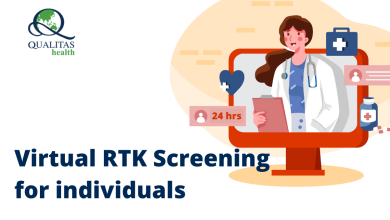Disability Support Services – What You Need to Know

Having a disability means you need help, but you may not know which disability support services are available to you. In this article, you will learn about the providers and resources that can help you. You will also learn about the documentation and costs.
Documentation requirements
It is important to provide documentation that proves you have a disability. Documentation does not have to be limited to the individual’s personal experience or family history. Documentation does not have to be limited to the individual’s own experience or family history. It can also include information from educational and medical records. Providing documentation is the first step in obtaining disability support services.
Documentation can be provided on paper, by fax, or via email. For accommodations for a long-term handicap, you will need documentation from a qualified professional. All documentation provided will remain confidential. You will also need to provide documentation from neuropsychological testing if you are seeking accommodations due to chronic or recurring impairments.
The following guidelines will help you to obtain the appropriate documentation. They were adapted by the Association on Higher Education and Disability. This is the primary professional resource for those working in disability.
The most important component of documentation is the functional impact of the disability. This should include information on information processing, environmental triggers and expected changes to functional impact over time. A detailed treatment plan should also be provided, including current medications and treatments. The treatment plan may include assistive devices, such a wheelchair or hearing aids.
The documentation requirements for intellectual disability services brisbane may vary depending on the type of disability. For example, a diagnosis of ADHD should be provided by a licensed mental health professional. A report detailing the student’s performance on standardized test should also be provided. English documentation must be included.
The DSM-IV provides valuable information about a student’s disability. It provides a general description of the impairment, describing how it affects social interactions, self-care, and other academic functions. This document also includes information about class attendance and work completion.
It is important to remember that documentation does not always carry over from high school to college. At the beginning of each academic year, you will need to provide documentation. The documentation deadlines may be extended.
To ensure the best documentation possible, it is important to review the documentation requirements regarding disability support services before you submit any documentation.
Cost
Paying for disability support can be costly. In 2013, the cost of disability support services in America was $652 billion. The cost of these services is based on the severity of the disability and the length of time a person will need the services.
By implementing targeted policies, you can reduce the cost for disability support services. These policies could include:
Family carers could be used to provide support. This would avoid the need to hire someone to do the tasks involved in employment. Family carers would be recognized by the payment. But, this payment would not provide all the support needed. This would require changing the funding of disability support.
Payed support can be expensive, especially if the government is not involved in the process. Without a proper control, the cost of providing support would increase and the quality of support may decrease.
The type of support you require will also influence the cost of your support. Some people might need support with daily living activities while others might need to attend a formal skill training program. This is determined by the extent of the disability, the type and length of the support required.
This includes a demonstration and cost estimate of the support that is available to disabled people, as well as the best way to fund it. All submissions will be carefully considered by the Ministry and final decisions will be made in early 2013.
In the United States, individualised funding is used to pay for disability support services. It allows a person to receive a set number of hours of support. This allows the disabled person to control how their support needs are met.
Providers
It is crucial to choose the right disability support service provider. They can help find you a job and provide ongoing support to ensure that your success. You can save time and frustration by choosing the right provider.
The number people with disabilities is growing. This is due both to increasing numbers of people with chronic health conditions and demographic trends. People with disabilities often have difficult access to cross-sectoral interventions. They also report difficulty affording healthcare costs.
There are many service providers available. They might offer specialized support, equipment or more comprehensive service. Before you decide on a provider, it is important to clearly define your goals.
Service providers should be able to provide clear information in your language. Ask about payment terms, payment methods, and any other terms and conditions. Check if the provider has other languages and coordinators who can speak them. You can also call customer service to ask more questions.
A good service provider will be able to prepare you for meetings with the NDIS. They can also help identify qualified employers and job seekers. You can also call NDIS 1800 800 110 for more information. To find out more about service providers, you may also attend networking events.
You should also ensure that the provider is familiar with NDIS. If they do, they can help you make the most of your plan meetings.
The new system relies on a dynamic, flexible system of supports. It is tailored to meet the needs and interests of people who live in their homes. It includes day support services and respite, as well community residential services.
In New York State, disability services generated $407.3 million in economic output. Their economic impact was the second-highest in New York State. These impacts were felt in all parts of the state. They supported 194,977 jobs full-time.
The New York State Disability Service Providers Association represents residential and non-residential service providers. They also represent the interests of Adult Family Homes, Early Intervention, Care Management, Day Services, and Supported Living Arrangements.
When choosing a provider, make sure you check their credentials, reviews, and NDIS registration. Ask your parents or professionals for their recommendations. Visit the provider to observe how they interact with clients if possible.
Resources for First Nations residents
Whether or not First Nations people who need disability support services can access them is a big question. This is due in part to the many factors involved with the disability experience. These include the trauma of forced land removal, broken treaties and the spread of disease, illiteracy, and the loss of land. Other burdens include political and economic marginalization, education gaps, and discrimination. These issues can lead to feelings of isolation and frustration.
One way to address these problems is to provide resources to support First Nations people with disabilities. Recent research found that many resources exist but that they are not sufficient. A study has revealed that there are very few resources that specifically target Indigenous people with ASD. Most of these resources were developed in Australia and Canada. The study revealed that these resources have some key characteristics that make them available for use.
These resources provide support to communities and families. The majority of the resources were created to help people living with ASD have better lives. They provide professional development, advocacy, information, and support to parents and self-advocates. They also offer assistance to carers. You can also access most of these resources online.
There are many resources that can be used to support Indigenous people with ASD. However, there is much more to be done to ensure they receive the support they require. There are no plans in place for “loss-and-damage” funding. The Department of Environment has released a draft of its final assessment of climate finance. However, it is unclear how much funding it will have and where it will come from. The Department of Environment also found out that it spent nearly four times more on emergency response than on preparedness. It also found that many First Nations communities were not prepared for disasters.
British Columbia Aboriginal Network on Disability Society is able to assist many First Nations people in need of disability support services. BCANDS is an Indigenous non-profit charitable society that offers a variety of services to eligible communities.




